Description
Do you get enough vitamin B12? You’ll want to make sure that you do, in order to stay healthy.
Vitamin B12 does a lot of things for your body. It helps make your DNA and your red blood cells, for example.
Since your body doesn’t make vitamin B12, you have to get it from animal-based foods or from supplements. And you should do that on a regular basis, because your body doesn’t store vitamin B12 for a long time.
Certain groups may not get enough vitamin B12 or have trouble absorbing it:
- Many older adults, who do not have enough hydrochloric acid in their stomach to absorb the vitamin B12 naturally present in food. People over 50 should get most of their vitamin B12 from fortified foods or dietary supplements because, in most cases, their bodies can absorb vitamin B12 from these sources.
- People with pernicious anemia whose bodies do not make the intrinsic factor needed to absorb vitamin B12. Doctors usually treat pernicious anemia with vitamin B12 shots, although very high oral doses of vitamin B12 might also be effective.
- People who have had gastrointestinal surgery, such as weight loss surgery, or who have digestive disorders, such as celiac disease or Crohn’s disease. These conditions can decrease the amount of vitamin B12 that the body can absorb.
- Some people who eat little or no animal foods such as vegetarians and vegans. Only animal foods have vitamin B12 naturally. When pregnant women and women who breastfeed their babies are strict vegetarians or vegans, their babies might also not get enough vitamin B12.
What happens if I don’t get enough vitamin B12?
Vitamin B12 deficiency causes tiredness, weakness, constipation, loss of appetite, weight loss, and megaloblastic anemia. Nerve problems, such as numbness and tingling in the hands and feet, can also occur. Other symptoms of vitamin B12 deficiency include problems with balance, depression, confusion, dementia, poor memory, and soreness of the mouth or tongue. Vitamin B12 deficiency can damage the nervous system even in people who don’t have anemia, so it is important to treat a deficiency as soon as possible.
In infants, signs of a vitamin B12 deficiency include failure to thrive, problems with movement, delays in reaching the typical developmental milestones, and megaloblastic anemia.
Large amounts of folic acid can hide a vitamin B12 deficiency by correcting megaloblastic anemia, a hallmark of vitamin B12 deficiency. But folic acid does not correct the progressive damage to the nervous system that vitamin B12 deficiency also causes. For this reason, healthy adults should not get more than 1,000 mcg of folic acid a day.
– – – – – – – – – – – – – – –
Ingredients:
Vitamin B12 – 1000mcg – 40% of NRV
Other Ingredients: Bulking agents (dicalcium phosphate, microcrystalline cellulose), anti-caking agents (silicon dioxide, fatty acids), HPMC, gazing agents (glycerine, carnauba wax)
Allergens: For allergens, see ingredients in bold. Product free from porcine/bovine gelatin. Suitable for those on vegetarian diets.

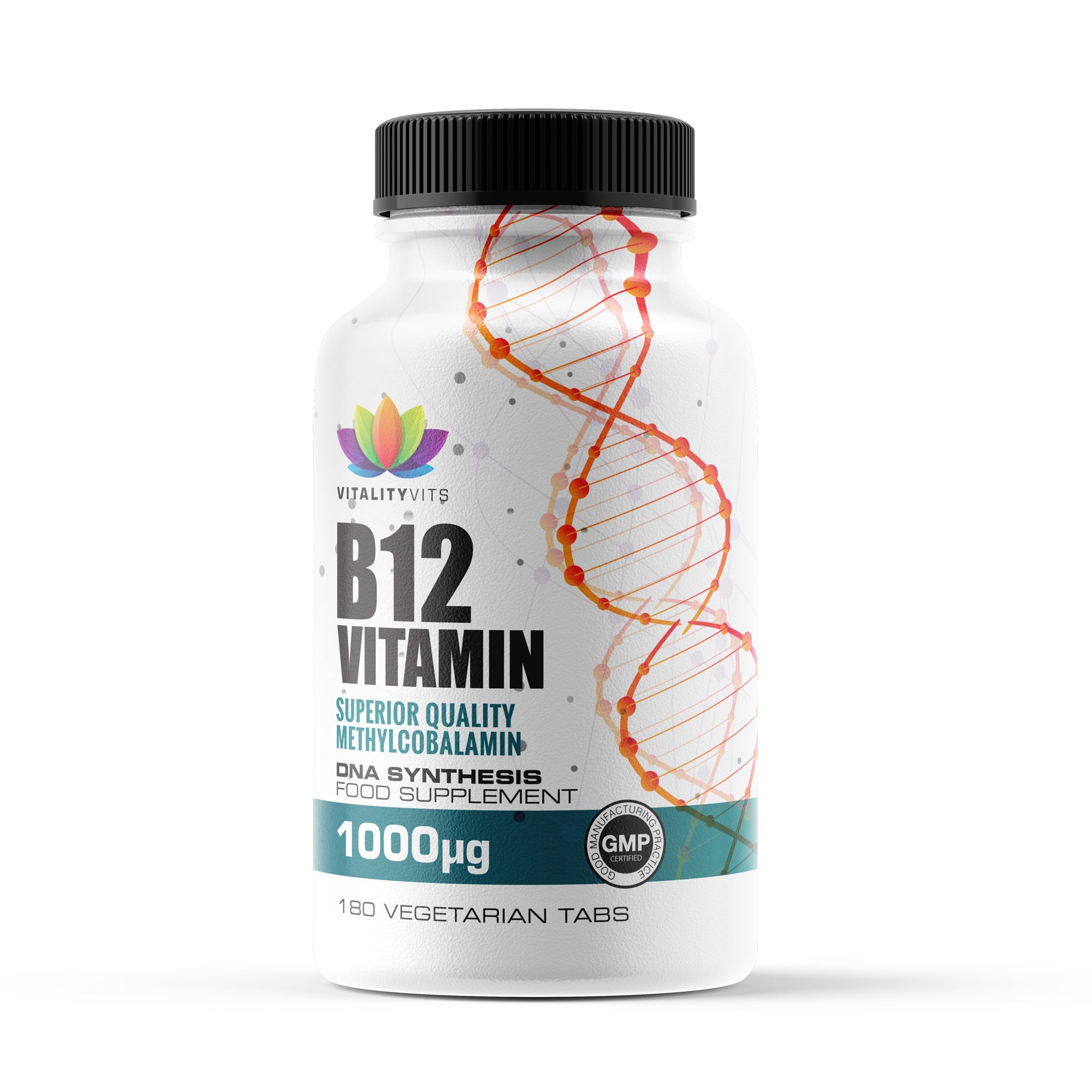
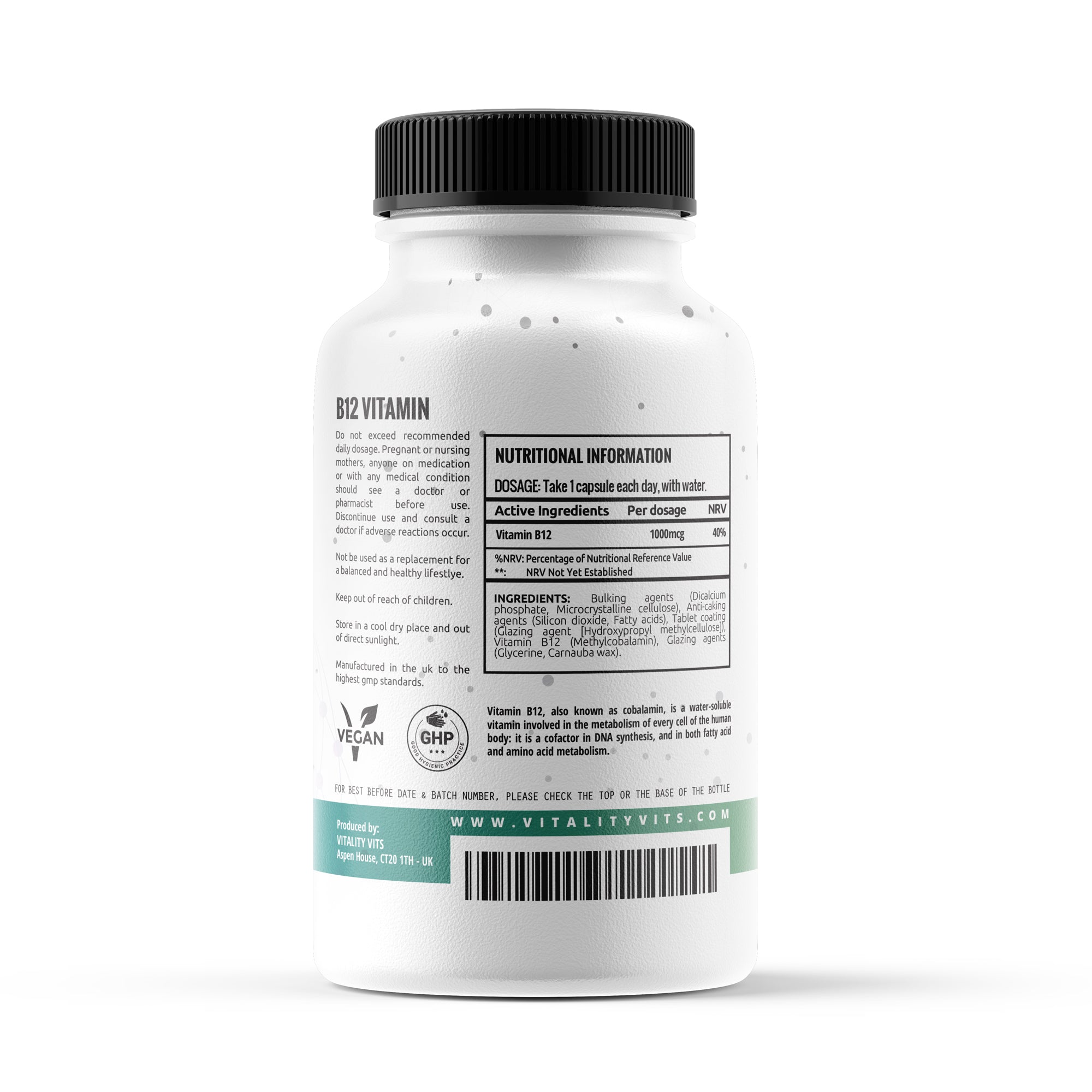
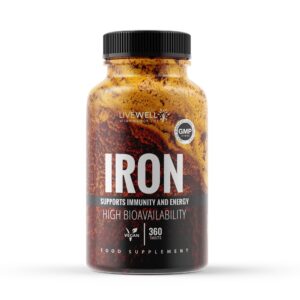
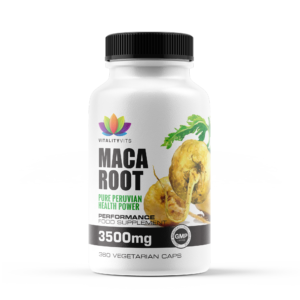
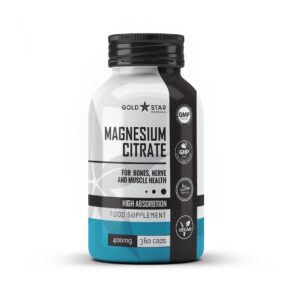
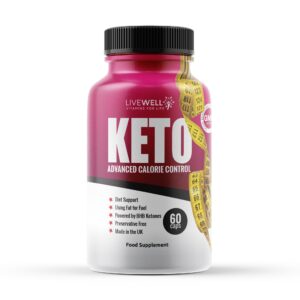
Reviews
There are no reviews yet.